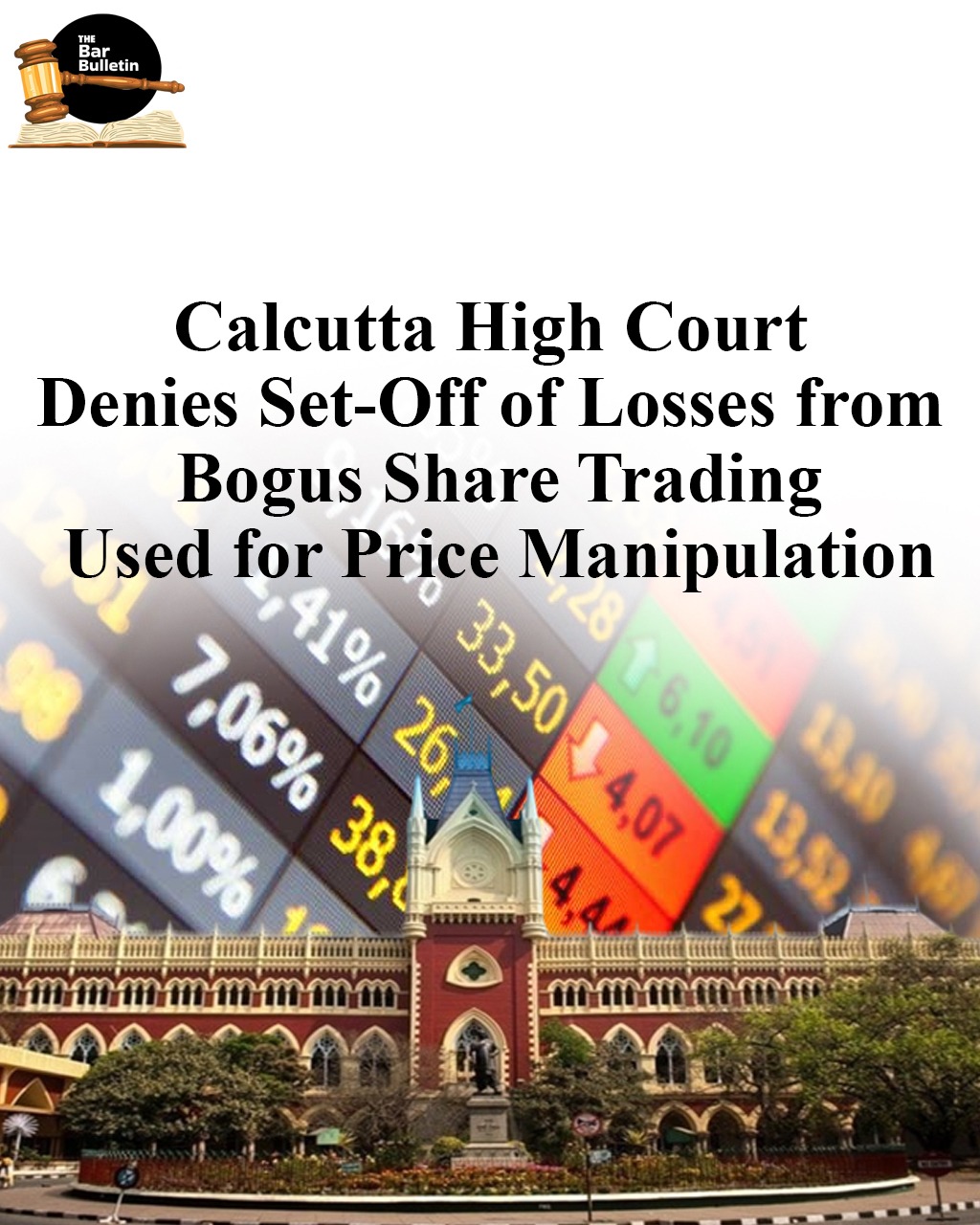Finding that the companies in whose shares were traded by the respondent are in the list of ‘bogus capital loss claim companies’, which undoubtedly shows a case involving organized tax evasion, the Calcutta High Court set aside the order passed by the ITAT and upheld the disallowances of stock trading loss made by the AO on account of price rigging and manipulation of prices of scripts. The Court also declined the set-off of losses on equity shares against interest income.
The Division Bench comprising Chief Justice T.S. Sivagnanam and Justice Chaitali Chatterjee (Das) observed that the trades were executed among parties connected directly or indirectly, which resulted in manipulations of the price of the scripts of Radford Global, and these entities contributed significantly to the market volume by trading among themselves and created a false and misleading appearance of trading in the scripts.
In this case, the respondent, an NBFC engaged in money lending and trading of shares and securities, declared its income of Rs. 1.34 lacs, pursuant to which their case was selected for scrutiny, and they were called upon to submit particulars of trading in shares. The AO noted that the respondent, on one hand, had incurred a loss of Rs. 51.33 lacs on account of trading in shares of Radford Global Limited and Shreenath Commercial, and on the other hand, had earned interest income of Rs. 32.43 lacs, which was set off with the trading loss of the scripts. After taking note of the investigation report of the Directorate of Income Tax, the AO found that the companies had no worth and they were not engaged in any proper business. Furthermore, the AO noted that the particular scripts purchased by the respondent were listed in the list of “bogus capital loss claims”. Even though the respondent claimed that the shares were purchased and sold through share brokers in Demat Form in recognized stock exchanges, and the payment was made through proper banking channels, the AO believed that the rise and fall of stock price in the allegedly tainted shares would not render the transactions as genuine. Therefore, holding the transactions as sham and fabricated, the AO took note of the statements of the entry operators, where they accepted rigging the price of the shares and managing the market to bring desirable results, and disallowed the loss reported in the stock trading of Rs. 51.33 lacs.
The NFAC also upheld the disallowance, referring to the order passed by the SEBI, which was affirmed by the Securities Appellate Tribunal (SAT), holding that entities, including Runicha Merchants, indulging in intra-group trading with a manipulative intent to increase the share price of Radford Global and violation of the SEBI Regulations and the SEBI Act, 1992. When the matter reached the ITAT, the order of the NFAC was reversed, and the AO was directed to allow the set-off loss on equity shares against interest income.
Finally, the matter reached the High Court, it was found that the trading of the shares followed a “bell-shaped” pattern, and the company, which had hardly any business activities, and the splitting of share took place after which price of the shares on the exchange went down automatically in proportion with the ratio of split up and one did not see anything adverse happening in the scripts. Further, the shares of the company were thinly traded, and gradually the value increased to a desired level in about one year to provide the desired amount to selected beneficiaries. The Court therefore allowed the appeal in favour of the Department and restored the disallowances made by the AO.
Case Distinguished:
Principal Commissioner of Income Tax vs Dipansu Mohapatra – [2023] 149 Taxman.com 99 (Orissa)
Chief Commissioner of Income Tax (OSD) vs Nilesh Jain (HUF) – [2024] 163 Taxmann.com 229 (Madhya Pradesh)
Cases Relied on:
Principal Commissioner of Income Tax Versus Swati Bajaj – (2022) 446 ITR 56 (Cal)
Principal Commissioner of Income Tax-9, Kolkata vs P L Goenka HUF – ITAT 241 of 2024
Appearances:
Senior Advocate Vipul Kundalia and Advocate Prithu Dudheria, for the Appellant/ Department
Advocates Agnibesh Sengupta, Dwip Raj Basu, and Avijit Kar, for the Respondent/ Taxpayer



